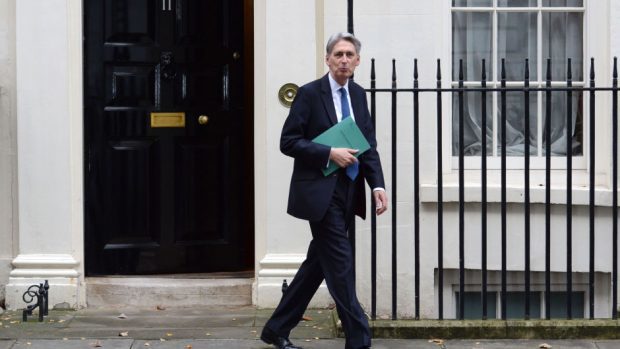Philip Hammond is often described as a no frills chancellor.
He arrived at parliament without a police escort, left ignominiously outside waiting for the lights to change.
He declined the privilege – and what a privilege it is – to enjoy an alcoholic beverage during his statement.
So straight-laced is the new chancellor, he would probably prefer a glass of milk in any event.
In a fine example of tautology, he described his analysis of “sober”.
There were plenty of pledges and cuts as the chancellor gave with one hand and took away with the other.
The message – such as it was – was that this was a break from the past.
The Osborne/Cameron era – how long ago does that seem? – of sound management of the public finances has vanished in a puff.
Hammond is no longer trying to “fix the roof while the sun is shining” – most likely because he’s realised the roof is huge and there is a massive Brexit thunderstorm on the horizon.
Instead, we are told he is “charting a new future”.
But, if he’s not a responsible chancellor like Osborne, then what is he?
Therein lies the crux – not just for Hammond, but the May government in general. Who is it for and what does it want?
The Autumn Statement got us no closer to finding out.
Hammond himself wore a look of anguish usually reserved for those trying to pair a wine with a Surf and Turf. (It is impossible).
It was neither austerity nor splurge. It was neither prudent nor reckless. It was neither exiting nor boring.
Hammond doesn’t know if he is Keynes or Hayek – or, indeed, a Director of the National Trust.
A rise in the National Living Wage will be welcomed in most quarters, as will pledges on house building and infrastructure.
But this was hardly a spending extravaganza and a welfare cap will take the sheen off any attempt to shift from the Osborne/Cameron era.
A three-minute diversion into the future of Wentworth Woodhouse – which Hammond has pledged to save – was perhaps the most detailed section of the statement.
Oil and gas was mentioned – but only as those three words.
With the chancellor back on the benches, the post-mortem can begin. As always, some will benefit and some will lose.
That will be easy to answer.
The more difficult question – of what the May government is really for – will remain.
